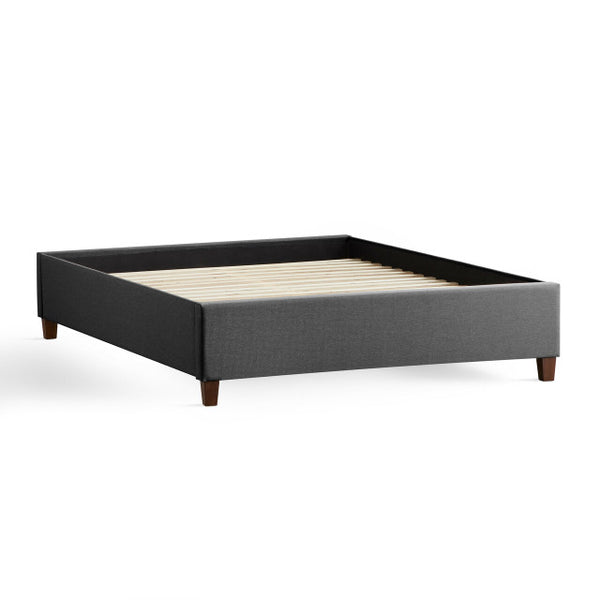
Frequently Asked Questions
1. Why is the quality of my mattress important for my health?
2. What are the health benefits of sleeping on a quality mattress?
3. How does mattress material affect sleep quality?
4. How often should I replace my mattress?
When it comes to sleep, most people underestimate the importance of their mattress. Often, individuals focus on lifestyle habits and diet, forgetting that the bed they sleep on can have a significant impact on their overall health. In this comprehensive guide, we will delve into the connection between mattress quality and your health, revealing why investing in a quality mattress is not just a luxury—it's a necessity.
The Sleep-Mattress Connection
Mattresses are not merely a resting place; they play an essential role in affecting sleep quality. A quality mattress supports your body and aligns your spine, ensuring you wake up refreshed and ready to tackle the day. Conversely, a poor-quality mattress can result in discomfort, pain, and a host of health problems.
The Importance of Sleep
Before we explore why mattress quality matters, let's discuss the importance of sleep.
- Physical Health: Quality sleep boosts your immune system and helps maintain a healthy weight.
- Mental Well-being: A good night's sleep can improve mood and cognitive function.
- Chronic Conditions: Lack of sleep has been linked to various chronic diseases, including heart disease and diabetes.
With the significance of sleep established, it’s time to examine how your mattress affects your rest.
Your Mattress: A Support System for Your Health
Your mattress serves as the foundation for your sleep experience. Here are some areas where mattress quality plays a crucial role in your health:
Spinal Alignment
A quality mattress maintains proper spinal alignment, which is vital for overall health. Mattresses that are too soft or too firm can cause misalignment, leading to back pain and other issues. When your spine is aligned correctly, you will be less likely to wake up with discomfort or strain.
Pressure Relief
High-quality mattresses are designed to distribute body weight evenly. This helps to relieve pressure on sensitive areas such as the shoulders, hips, and knees. Poor pressure relief can lead to tossing and turning throughout the night, disrupting sleep cycles and preventing restorative sleep.
Temperature Regulation
Quality mattresses often feature breathable materials that help regulate temperature. Overheating during sleep can lead to disturbances, resulting in a less restful night. Look for mattresses with materials designed to wick away moisture and keep you cool.
Allergens and Health Risks
Your mattress doesn’t just affect your sleep quality; it can also pose health risks. Investing in a quality mattress can minimize these risks:
Dust Mites and Allergens
Dust mites thrive in old, worn-out mattresses. These tiny creatures can trigger allergic reactions and sleep disturbances. High-quality mattresses are often made with materials that resist dust mites, reducing potential allergens. Regular maintenance, such as cleaning and coverings, can further limit exposure.
Chemical Off-Gassing
Many lower-quality mattresses are made from synthetic materials that can emit volatile organic compounds (VOCs). These chemicals can contribute to indoor air pollution and respiratory issues. Choosing a mattress made from natural or organic materials can help avoid exposure to harmful chemicals.
The Long-Term Benefits of a Quality Mattress
Investing in a quality mattress is not just about immediate comfort; it can yield long-term health benefits:
Enhanced Sleep Quality
Sleeping on a quality mattress can significantly improve the quality of your sleep, leading to greater productivity and better health outcomes.
Reduced Healthcare Costs
Prioritizing sleep can lead to reduced healthcare costs over time. Poor sleep is connected to various health problems that can lead to expensive treatments, creating an ever-growing financial burden.
Improved Mood and Mental Health
Quality sleep enhances mood, reduces anxiety, and contributes to overall mental health. A quality mattress can be transformative for your emotional well-being, strengthening your resilience against stress.
Choosing the Right Mattress for Your Health
When selecting a mattress, consider the following factors to ensure it meets your health needs:
Sleeping Position
Your preferred sleeping position impacts the type of support you need. Side sleepers typically require a softer mattress for cushioning, while back and stomach sleepers often fare better on a firmer surface.
Material Consideration
Different materials come with varying levels of support and comfort. Memory foam is known for its contouring properties, while innerspring mattresses offer better airflow. Find a material that aligns with your comfort preferences while also providing necessary support.
Trial Period and Warranty
Many quality mattress brands offer a trial period that allows you to test the mattress before committing fully. Additionally, a solid warranty can provide peace of mind that your investment is protected against defects.
The Price of Quality
Quality mattresses can come at a higher price point, but consider it an investment in your health. A cheap mattress may save you money initially but could lead to health issues that cost you more in the long run. Remember, the right sleep environment will pay dividends in your daily functioning and long-term well-being.
Common Misconceptions About Mattresses
While many people recognize the importance of mattresses, several misconceptions persist:
More Expensive Means Better
While there is some correlation between price and quality, it's not a hard and fast rule. Not all expensive mattresses are better than mid-range options. It's essential to evaluate based on personal comfort and support.
Old Mattresses Are Just Fine
Many believe that as long as a mattress appears to be in good condition, it is still good to sleep on. However, mattresses generally lose their support and comfort after around seven to ten years, even if they look good.
All Mattresses are the Same
Every mattress is unique, and different types cater to different needs. Researching and testing various options is crucial to find the perfect one for you.
Tips for Maintaining Your Mattress
You are investing in your health when you buy a quality mattress. This investment deserves care to maximize its lifespan:
- Rotate Regularly: Rotating your mattress every three to six months can help maintain its shape and support.
- Use a Mattress Protector: A quality mattress protector can shield against stains and allergens.
- Keep It Clean: Regularly vacuum your mattress to remove dust and allergens.
Transform Your Sleep, Transform Your Life
The importance of a quality mattress for your health cannot be overstated. It acts as the foundation for restful sleep, positively impacting your physical and mental well-being. By prioritizing a quality mattress, you're not just choosing comfort; you're investing in a healthier, more fulfilling life. Take the leap toward better sleep and improved health today—you deserve nothing less!









